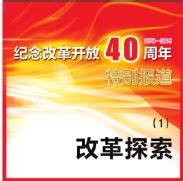J11戰(zhàn)機(jī):中國空軍的得力利器
J11是中國空軍的一款主力戰(zhàn)機(jī),具有出色的性能和多樣化的作戰(zhàn)能力。本文將從J11戰(zhàn)機(jī)的概況、設(shè)計(jì)特點(diǎn)、性能參數(shù)、作戰(zhàn)能力和未來發(fā)展等方面進(jìn)行詳細(xì)介紹。
概況
J11戰(zhàn)機(jī)是中國根據(jù)俄羅斯蘇霍伊公司生產(chǎn)的蘇-27戰(zhàn)機(jī)進(jìn)行改進(jìn)研制的第三代戰(zhàn)斗機(jī),于1998年開始列裝中國空軍。J11戰(zhàn)機(jī)主要用于對抗空中目標(biāo)、地面目標(biāo)和海上目標(biāo)。
- 尺寸: J11戰(zhàn)機(jī)的全長22.1米,翼展14.7米,高度5.9米。
- 動(dòng)力: J11戰(zhàn)機(jī)搭載兩臺(tái)中國自主研發(fā)的WS-10發(fā)動(dòng)機(jī),每臺(tái)推力可達(dá)125kN。
- 武器: J11戰(zhàn)機(jī)可攜帶空空導(dǎo)彈、空地導(dǎo)彈、空對艦導(dǎo)彈和火箭彈等多種武器。
設(shè)計(jì)特點(diǎn)
J11戰(zhàn)機(jī)在設(shè)計(jì)上充分考慮了速度、機(jī)動(dòng)性和隱身性等要求,采用了前后雙垂尾的設(shè)計(jì),提高了飛機(jī)的機(jī)動(dòng)性和穩(wěn)定性。此外,J11戰(zhàn)機(jī)的機(jī)身采用了大量復(fù)合材料和隱身涂料,減少了雷達(dá)反射面積,增強(qiáng)了隱身性能。

- 氣動(dòng)布局: J11戰(zhàn)機(jī)采用常規(guī)的全動(dòng)翼和后掠機(jī)翼布局,能夠在高速機(jī)動(dòng)時(shí)保持穩(wěn)定。
- 航電系統(tǒng): J11戰(zhàn)機(jī)配備了先進(jìn)的火控雷達(dá)和電子對抗系統(tǒng),提高了作戰(zhàn)效能。
- 機(jī)載武器: J11戰(zhàn)機(jī)可攜帶多種導(dǎo)彈和炸彈,具有較強(qiáng)的對地、對空和對海作戰(zhàn)能力。
性能參數(shù)
J11戰(zhàn)機(jī)具有出色的性能參數(shù),能夠滿足多種作戰(zhàn)需求。
- 最大速度: J11戰(zhàn)機(jī)的最大速度可達(dá)2.35馬赫,超音速巡航速度為1.8馬赫。
- 升限: J11戰(zhàn)機(jī)的升限超過18000米,具有較強(qiáng)的高空作戰(zhàn)能力。

- 航程: J11戰(zhàn)機(jī)的最大航程可達(dá)3000公里,可以執(zhí)行遠(yuǎn)程打擊任務(wù)。
作戰(zhàn)能力
J11戰(zhàn)機(jī)具有多種作戰(zhàn)能力,可以應(yīng)對不同的作戰(zhàn)環(huán)境和任務(wù)需求。
- 空中作戰(zhàn): J11戰(zhàn)機(jī)配備了先進(jìn)的空空導(dǎo)彈和雷達(dá)系統(tǒng),能夠在空戰(zhàn)中取得優(yōu)勢。
- 對地打擊: J11戰(zhàn)機(jī)攜帶了多種空地導(dǎo)彈和炸彈,可對地面目標(biāo)進(jìn)行精確打擊。
- 海上作戰(zhàn): J11戰(zhàn)機(jī)可攜帶反艦導(dǎo)彈,具有較強(qiáng)的海上打擊能力。
- 對抗性能: J11戰(zhàn)機(jī)具有良好的對抗性能,可以有效對抗敵方防空系統(tǒng)。
未來發(fā)展
隨著科技的不斷發(fā)展,J11戰(zhàn)機(jī)將不斷進(jìn)行升級改進(jìn),提升其作戰(zhàn)能力和生存能力。
- 先進(jìn)雷達(dá):未來的J11戰(zhàn)機(jī)可能配備具有更高分辨率和更遠(yuǎn)探測距離的先進(jìn)雷達(dá)。
- 電子對抗: J11戰(zhàn)機(jī)可能加入更先進(jìn)的電子對抗系統(tǒng),提高對抗性能。
- 無人化升級: 未來的J11戰(zhàn)機(jī)可能會(huì)實(shí)現(xiàn)部分自主作戰(zhàn)能力,提高整體作戰(zhàn)效能。
總的來說,J11戰(zhàn)機(jī)作為中國空軍的得力利器,具有出色的性能和多樣化的作戰(zhàn)能力,將繼續(xù)在未來的戰(zhàn)場上發(fā)揮重要作用。
文章大綱
Introduction
- Brief introduction of jianxia
- Importance of jianxia in Chinese culture
Historical Background
- Origin of jianxia
- Evolution of jianxia over time
Characteristics of jianxia
- Physical appearance of jianxia
- Personality traits of jianxia
- Skills and abilities of jianxia

Roles and Responsibilities
- Duties of a jianxia in ancient China
- Contributions of jianxia to society
Impact of jianxia
- Influence of jianxia on Chinese literature and art
- Legacy of jianxia in modern times
Conclusion
- Summary of key points discussed
- Final thoughts on the significance of jianxia

The concept of jianxia, or "gentleman swordsman," holds a significant place in Chinese culture and history. Jianxia were skilled swordsmen who possessed a unique blend of physical prowess, intelligence, and moral integrity. They played a crucial role in ancient China, not only as warriors but also as scholars, poets, and advisors to nobility. In this article, we will explore the origins, characteristics, roles, and impact of jianxia in Chinese society.
Historical Background
The term jianxia first appeared in Chinese literature during the Warring States period (475-221 BCE). Jianxia were often depicted as martial arts experts who upheld chivalry, loyalty, and honor. Over time, the image of the jianxia evolved to include not only fighting prowess but also intellectual acumen and artistic talent. Jianxia were admired for their ability to navigate the complexities of the feudal system while staying true to their moral principles.
The jianxia's code of conduct was based on the principles of Confucianism, emphasizing loyalty to one's lord, filial piety, and righteousness. They were expected to live by a strict moral code and uphold the values of honor and integrity in all aspects of their lives. Jianxia were often portrayed in literature and art as exemplars of virtue and nobility, revered for their courage in the face of adversity.
Characteristics of jianxia
Physically, jianxia were often described as tall, handsome, and well-built. They were skilled in various forms of martial arts, including swordsmanship, archery, and hand-to-hand combat. In addition to their martial skills, jianxia were also highly educated, well-read, and proficient in poetry, calligraphy, and music.
A jianxia's personality was characterized by a strong sense of justice, righteousness, and compassion. They were quick to defend the weak and oppressed, often taking on the role of championing social justice and fighting against corruption and tyranny. Jianxia were known for their courage in the face of danger, their loyalty to their friends and allies, and their unwavering commitment to their principles.
In addition to their physical and intellectual abilities, jianxia were also skilled diplomats and strategists. They were adept at navigating the complex political landscape of ancient China, forging alliances, negotiating treaties, and resolving conflicts through peaceful means whenever possible. Jianxia were valued not only for their martial prowess but also for their ability to think critically, solve problems, and lead others with wisdom and humility.
Roles and Responsibilities
Jianxia played a variety of roles in ancient Chinese society, serving as warriors, advisors, poets, writers, and artists. They were often called upon to protect their lord and his household, defend their homeland from invaders, and uphold the principles of righteousness and honor in all their interactions. Jianxia were also known for their loyalty to their friends and allies, often forming close bonds with other like-minded individuals who shared their values and beliefs.
In times of peace, jianxia would often retreat to the mountains or countryside to meditate, practice martial arts, and contemplate the mysteries of the universe. Many jianxia were also renowned scholars and poets, contributing to the rich literary and artistic tradition of China with their writings and creations. Jianxia were seen as exemplars of the scholar-warrior ideal, embodying the perfect balance of mind, body, and spirit in their pursuit of excellence and enlightenment.
Impact of jianxia
The influence of jianxia on Chinese literature, art, and philosophy cannot be overstated. Their stories and exploits were passed down from generation to generation, inspiring countless works of literature, poetry, and drama. Jianxia became the archetypal hero in Chinese culture, representing the virtues of courage, loyalty, and honor that were so highly prized by the ancient Chinese people.
The legacy of jianxia continues to resonate in modern times, with many martial arts practitioners and enthusiasts drawing inspiration from their timeless teachings and moral wisdom. Jianxia are often portrayed in popular culture as gallant heroes who fight for justice, defend the weak, and uphold the values of chivalry and honor. Their influence can be seen in everything from traditional Chinese opera to contemporary martial arts films, showcasing the enduring appeal of the jianxia archetype in Chinese society.
Conclusion
In conclusion, jianxia were not just skilled swordsmen, but also paragons of virtue, wisdom, and compassion. They served as role models for generations of Chinese people, embodying the ideals of chivalry, loyalty, and honor in their lives and actions. The legacy of jianxia lives on in the hearts and minds of those who continue to uphold the values of righteousness and integrity in an ever-changing world. Jianxia remind us that true greatness lies not in power or wealth, but in the strength of one's character and the nobility of one's soul.
























